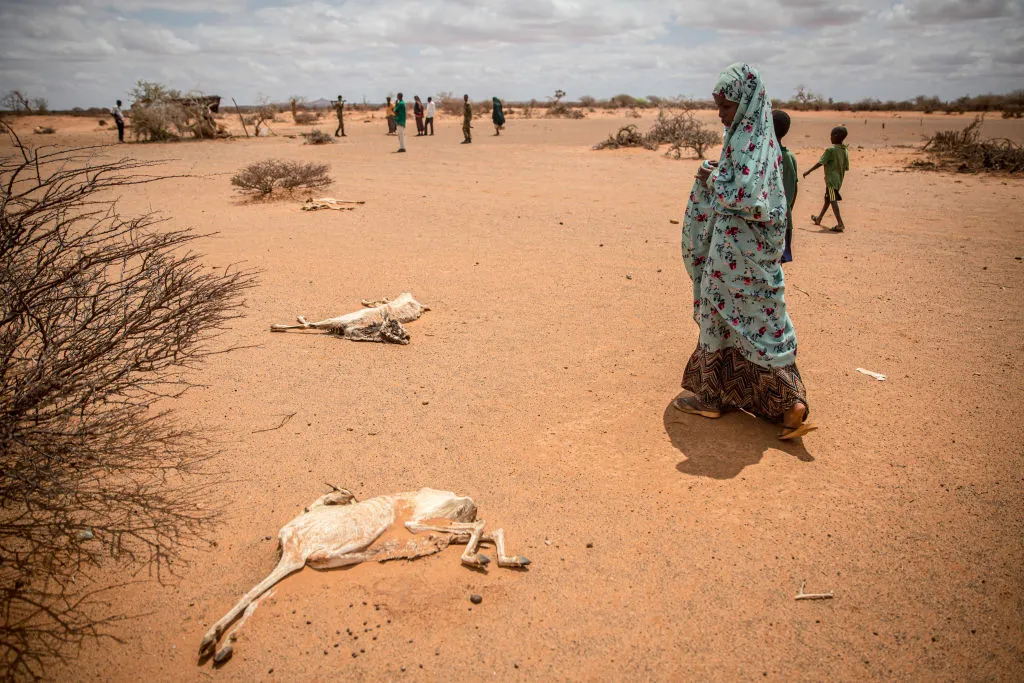Amnesty International has accused Somalia and the international community of failing thousands of people displaced by the ongoing drought in southern Somalia. The rights group says authorities have neglected their obligations to protect citizens affected by climate change, conflict, and poverty.
In its report, “No rain, no food, no animals: The human rights impact of drought and displacement in Somalia,” Amnesty highlights how prolonged drought since 2022, worsened by global warming, has devastated communities. Water sources have dried up, forcing residents to drink contaminated water and exposing them to cholera and other diseases. Food prices have surged by up to 160% compared to pre-2020 levels, making food scarce and unaffordable, leading to severe hunger and malnutrition.
The report draws on interviews with 177 displaced people at Dadaab Refugee Camp in Kenya between September 2024 and March 2025, alongside insights from humanitarian workers, government officials, and climate experts. Many were forced to travel hundreds of kilometres for basic necessities and medical care, with some making journeys of up to 1,000 kilometres.
Tigere Chagutah, Amnesty’s Regional Director for East and Southern Africa, said, “Somalia’s contribution to global warming is negligible, yet its people are bearing the brunt of the climate crisis. High-income countries, especially those most responsible for climate change, must step in and meet their obligations to support Somalia.”
Personal testimonies reveal the human toll. Fadumo, a 53-year-old mother of eight, abandoned her farm and walked 24 hours searching for water. Bile, a farmer from Jilib, lost his parents to famine after fleeing to Kenya with his family. Multiple displacements have forced many to sell their few possessions to survive.
Amnesty calls on Somalia to develop climate resilience policies and urges the international community to act immediately to prevent further deaths and displacement. Chagutah added, “Limited resources and ongoing conflict are not an excuse to neglect international obligations. Authorities must ensure sufficient resources to protect affected communities.”
The report underscores the urgent need for coordinated humanitarian and climate action to protect vulnerable populations in Somalia before the crisis deepens.

